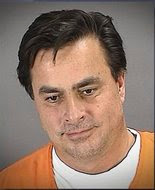Over the last decade or so, reality TV has kept people talking. Competitions like Pop Idol and The X Factor draw in millions of viewers, each supporting their favourites either by simply watching the show, or by watching the show and actively voting to keep their contestants in.
Reality shows can uncover talent and challenge stereotypes. One example is a lady called Susan Boyle, who took part in Britain's Got Talent. When she stepped onto the stage, the judges and the audience did not appear to be taking her seriously. They saw a woman of a certain age, who wasn't conventionally pretty, and they didn't think her capable of being a genuine contestant. All that changed when she began to sing. Susan Boyle is now known around the globe.
Critics say that shows like The X-Factor are manufactured moneymaking machines. It cannot be denied that the format plays on people's feelings (amongst others by showing stories of contestants' tragic pasts) and that, yes, there is a lot of money to be made. When people vote for their favourite to win, they will often purchase their first single. Votes, too, cost money. People are sold entertainment and some are willing to buy it in order to feel involved.
Fans of reality TV tend to be aware of its flaws and manipulation, and take the shows as they come. If a show's producers push it too far, they will speak up. When the British version of The X Factor was thought to have used auto-tuning in the production stages to make certain contestants sound better, it sparked an outrage and apologies had to be made.
One show that's caused some uproar in the past is Endemol's Big Brother. First shown in the Netherlands, Big Brother soon became popular around the world. The format was simple - stick a group of people in a fully monitored environment, set them some challenges and see what happens. Fans of the show can view the contestants around the clock and discover the ever-changing dynamics and interactions within the group.
Big Brother is currently in its final series on Channel 4 in the UK. There is a possibility that it may be picked up by another channel in the future. Several years ago, this UK series became controversial after racial tension between some of the housemates. Since then, Endemol and Channel 4 have been more careful with their format (too careful, according to a portion of its long-term fans), to avoid further outrage. This is understandable, as racism should never be tolerated. However, a lot of housemate interaction which would have been permissible in the past is no longer allowed.
Whilst some people see reality TV shows as an easy step into Z-list celebrity, and some would challenge the celebrity culture, the popularity of shows in this genre may have waned some, but they still draw a considerable amount of viewers. So what is it that people like about reality TV?
I think that everyone watches for their own reasons, from watching talented people and following their journey, to witnessing the developments of a group of people in a psychologically challenging environment. I also feel that one of the major factors is that these shows offer us the chance to watch people - ordinary people like us - follow their dreams or endure the ups and downs of their time on the show.
We like to spot people we can relate to. We like to imagine how we would have handled a situation, and see if our reactions are comparable to those of the people on our screen. And over time, we form a certain connection with the contestants, even though we're not likely to ever meet them. We start to feel like we know them, even a little, and we start to care about them.
This is the strength of reality TV, and for all its flaws and manipulation, its development is interesting. Whether or not it has a future is questionable - it shouldn't push the boundaries too far and turn vulgar, it shouldn't start to rely on the shock factor to draw an audience, nor should it turn so politically correct that it becomes patronizing and, well, dull. Program makers have their own challenge ahead to keep the format fresh, but if they can manage it, there should be some interesting years of entertainment ahead.
Kit Marsters is an author on http://www.Writing.Com/ which is a site for Creative Writing. She's also watched one too many series of Big Brother, though she's unlikely to stop.
Avis Car Rental mortgage loan
